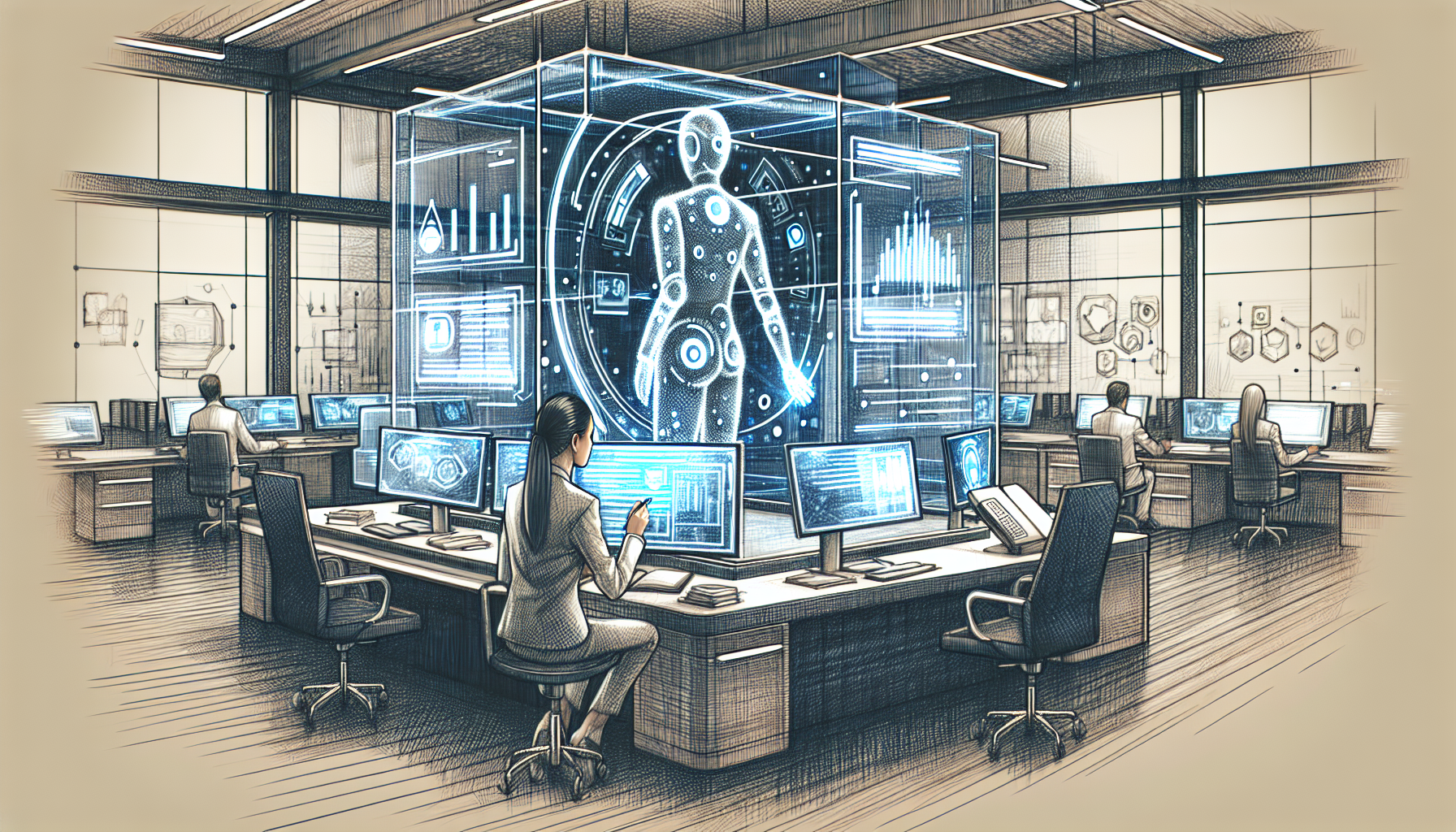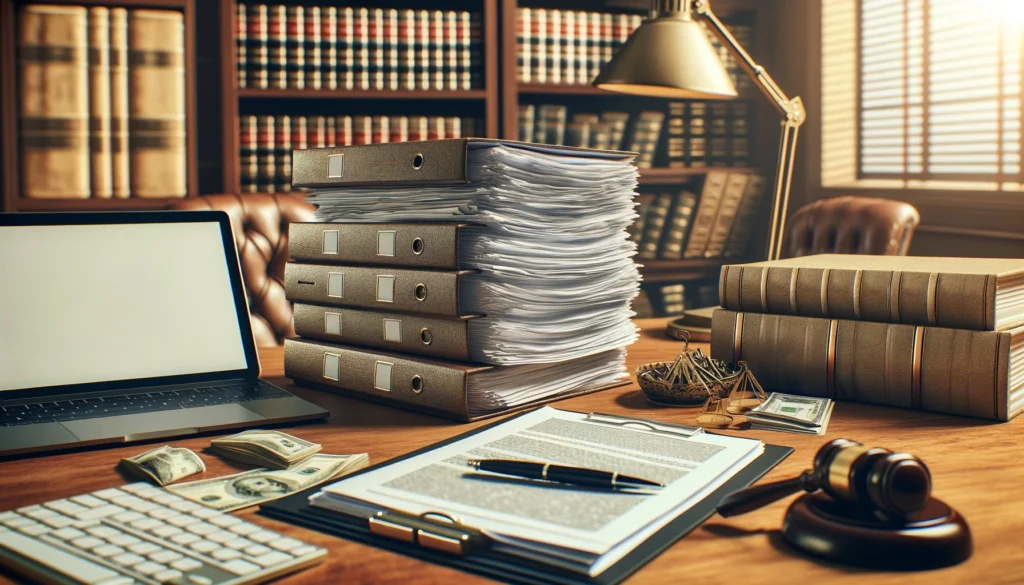
Opening Scene: The Modern Paralegal’s Toolbox
As the legal profession evolves, so too does the role of the paralegal. No longer confined to the back office, paralegals today are armed with powerful digital tools that streamline workflows, enhance accuracy, and improve efficiency. One standout tool in this modern arsenal is ChatGPT, a large language model (LLM) designed to assist with various tasks, from drafting documents to conducting legal research.
Setting the Stage: Why Efficiency Matters in Personal Injury Case Management
In personal injury law, time is often of the essence. Efficient case management can mean the difference between a timely settlement and a protracted legal battle. With clients’ lives and well-being at stake, law firms must optimize their operations to ensure each case progresses smoothly. Streamlining processes reduces delays, minimizes errors, and allows legal teams to focus on delivering the best possible outcomes for their clients.
Efficacy in case management boils down to utilizing available resources wisely. Paralegals play a critical role in this process, and integrating digital assistants like ChatGPT can significantly enhance their productivity.
Also read:
The Digital Assistant: Introducing ChatGPT and LLMs
ChatGPT, developed by OpenAI, represents a new frontier in legal technology. Leveraging the power of large language models (LLMs), ChatGPT can perform a myriad of functions that support paralegals in their daily tasks. From drafting documents to conducting initial client intakes, ChatGPT is a versatile tool that can accelerate many aspects of legal work.
LLMs like ChatGPT use advanced natural language processing to understand and generate human-like text. By integrating ChatGPT into their workflows, law firms can automate routine tasks and focus their human resources on more complex and strategic activities.
Also read:
Prompt Mastery: Kickstarting Your Workflow with Efficient Prompts
Generating Standard Legal Documents
ChatGPT can generate a variety of standard legal documents, saving paralegals considerable time. For example:
<prompt>Draft a personal injury complaint for a client injured in a car accident due to defendant's negligence.</prompt>
Initial Client Intake Scripts
Streamline your initial client interactions with pre-designed scripts:
<prompt>Generate a script for an initial client intake meeting regarding a slip and fall accident.</prompt>
Organizing Case Notes and Summaries
Keep your case notes organized and easy to reference:
<prompt>Summarize the key points from the client's medical records for a personal injury case.</prompt>
Effective prompts form the foundation of a productive workflow, allowing paralegals to quickly generate essential documents and organize necessary information.
Also read:
Advanced Interaction: Beyond Basic Queries
Legal Research and Statute Summarization
LLMs can assist in identifying relevant statutes and summarizing legal research:
<prompt>Summarize the key provisions of the comparative negligence statute in California.</prompt>
Drafting Complex Legal Arguments
Complex legal arguments demand precision and clarity:
<prompt>Draft a legal argument opposing a motion for summary judgment in a personal injury case.</prompt>
Fine-tuning Settlement Demands
Ensure your settlement demands are comprehensive and persuasive:
<prompt>Draft a settlement demand letter for a client with substantial medical bills and lost wages due to a workplace injury.</prompt>
Advanced interactions with ChatGPT enable paralegals to perform higher-level tasks, assisting with legal research, drafting arguments, and honing settlement strategies.
Also read:
Time Savers: Automating Routine Tasks
Scheduling and Calendar Management
Efficiently manage important dates and deadlines:
<prompt>Create a calendar of critical deadlines for a personal injury case involving multiple parties.</prompt>
Client Communication Templates
Generate consistent and professional client communications:
<prompt>Draft a follow-up email to a client requesting additional documentation for their personal injury case.</prompt>
Document Review Checklists
Ensure thorough and organized document reviews:
<prompt>Create a checklist for reviewing medical records in a personal injury lawsuit.</prompt>
Automating routine tasks with ChatGPT not only saves time but also ensures consistency and accuracy in case management.
Also read:
Error Minimization: Quality Control Using LLM Techniques
Cross-checking Information
Verify facts and data for accuracy:
<prompt>Cross-check the client's deposition transcript with their medical records for inconsistencies.</prompt>
Proofreading and Editing
Enhance the quality of your documents:
<prompt>Proofread and edit a personal injury complaint for grammar and clarity.</prompt>
Ensuring Compliance with Legal Standards
Ensure all documents adhere to legal requirements:
<prompt>Review the compliance of a settlement agreement with state-specific personal injury laws.</prompt>
Employing LLM techniques for quality control minimizes errors, ensuring that documents are accurate, well-written, and legally sound.
The Human Touch: Balancing AI Efficiency with Paralegal Expertise
While ChatGPT offers numerous advantages, the expertise and judgment of a skilled paralegal are irreplaceable. Paralegals bring an in-depth understanding of the law, nuanced client interactions, and strategic insight that AI cannot replicate.
The best outcomes result from a balanced approach, leveraging AI efficiency while preserving the human touch that ensures personalized client service and nuanced legal analysis.
Also read:
Looking Forward: Future Trends and Continuous Improvement
As technology continues to advance, the integration of AI in legal services will likely deepen. Future trends include more sophisticated LLMs, enhanced automation capabilities, and the seamless integration of AI tools into legal practice management systems.
Continuous improvement and adaptation are crucial for staying ahead in the competitive legal landscape.
Also read:
Final Thoughts: Embracing Change in Legal Practice
Embracing AI tools like ChatGPT heralds a new era in legal practice where efficiency and accuracy are paramount. By integrating these technologies, law firms can enhance their services, provide timely and effective representation, and focus on what truly matters—advocating for their clients.
Change is inevitable, and those who adapt swiftly and smartly will undoubtedly lead the charge in the evolving legal ecosystem.


